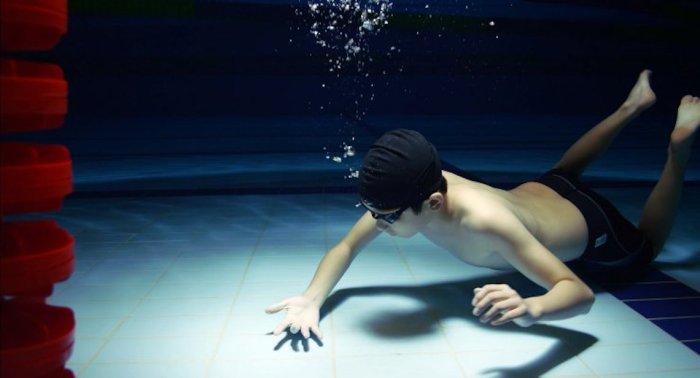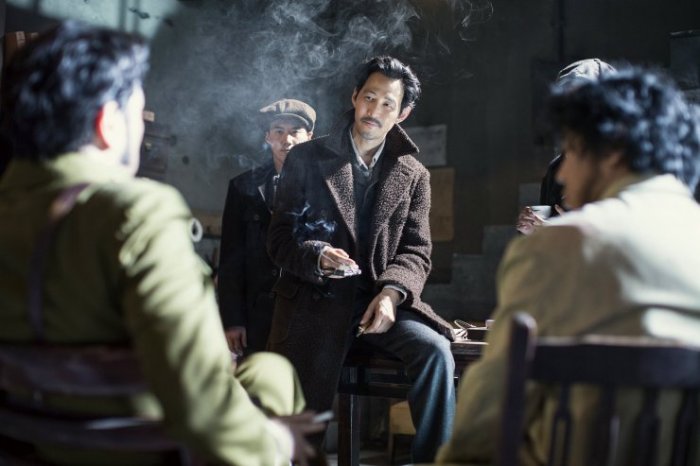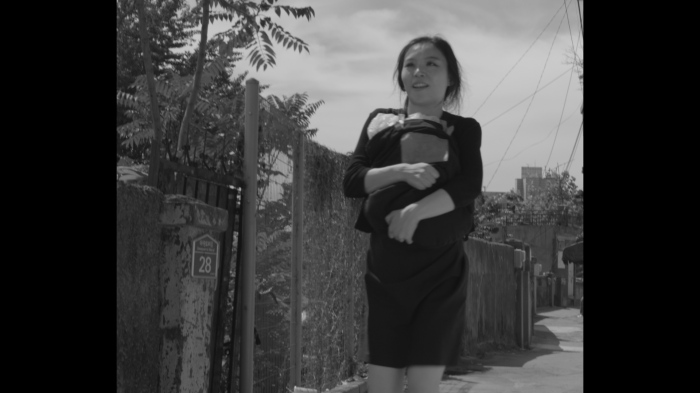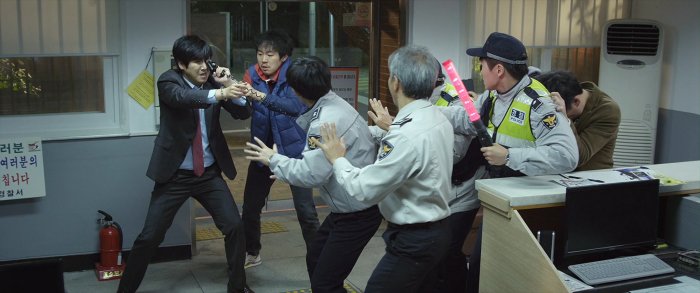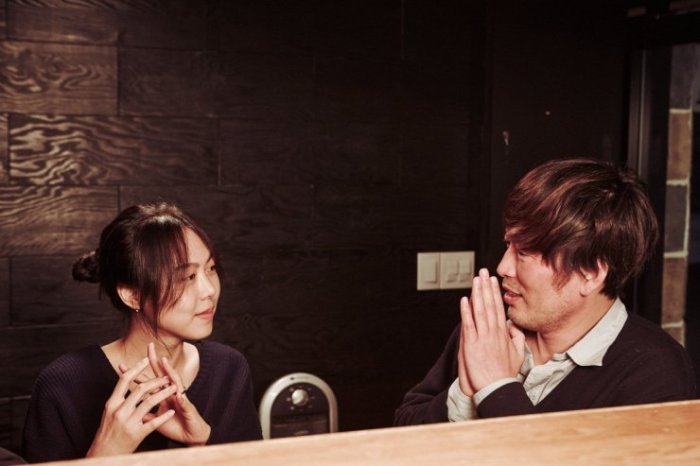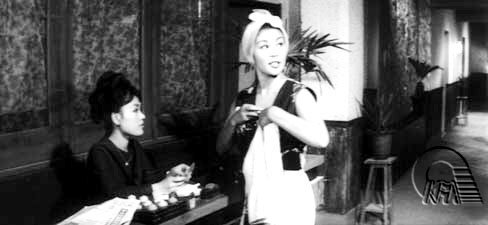Youngster Joon-ho (Yoo Jae-sang (유재상) loves to be in the water and has a real talent for swimming, yet for some reason he always places fourth in competitions. Furious at her son’s lack of improvement despite her constant scolding, Joon-ho’s mother (Lee Hang-na (이항나) seeks out a renowned swimming coach with terrible reputation – former olympic hopeful Gwang-soo (Park Hae-joon (박해준). As Joon-ho’s training commences, coach Gwang-soo’s methods become increasingly violent, revealing the extremes taken and endured in such a competitive culture.
Produced in conjunction with the National Human Rights Commission of Korea, 4th Place is a potent exploration of the extremely competitive education culture that exists within Asia. Studies routinely reveal that Korean children are amongst the unhappiest in the world with shocking levels of suicide, due the incredible stress heaped upon them by strict parents and teachers, and as such director Jeong Ji-woo deserves respect merely for broaching the issue on film.
Director Jeong examines the issue through Joon-ho, a youngster who deeply enjoys swimming yet is incessantly berated and belittled by his shrill mother for not taking the sport more competitively. The manner in which she psychologically torments her son is equal parts horrifying and infuriating to behold, as she manipulates Joon-ho into equating his lack of success as a lack of love for her, initiating deep internalised guilt. Through her machinations at church – which director Jeong subtly insinuates as a place of corruption – she finds a coach for Joon-ho, one who verbally and physically abuses the youngster. Parallels are clear with the exceptional drama Whiplash, and while 4th Place never reaches those heights it deserves commendation for tackling such a vital societal issue.
Visually, 4th Place is beautifully shot during the swimming scenes. The lighting and lenses used serve to create a world of majesty and elegance under the water, a place where Joon-ho can escape and find enjoyment in solitude. Such sequences wonderfully convey the youngster’s love of swimming and the freedom it brings, as he gracefully glides through the water as if it’s his natural state of being. Yet such cinematic stylisation rarely extends beyond the arena of the pool however, with director Jeong’s more sophisticated dramatic techniques as employed in prior films Eungyo (A Muse) and Happy End sadly missing during scenes of family conflict.
The dramatic tension is also undermined by the lack of a central figure. Whiplash is a phenomenal film largely due to Miles Teller’s central performance from a mild-mannered to psychologically unhinged student, yet in 4th Place acting duties are generally shared equally among the cast resulting in a lack of singular perspective and characters that are largely one-dimensional. Perhaps worryingly, the most developed member of the film is the violent coach due to (an overly long) prelude that simultaneously infers the circular nature of corporal punishment and generates sympathy for him – arguably more so than young victim Joon-ho. In more adept hands the emotional complexity of the mother and coach could shine through despite the script’s shortcomings, though Lee Hang-na and Park Hae-joon are unfortunately not up to the task as they over-exaggerate their respective performances.
Nevertheless the story is a timely and important one, with the film’s finale one of the most creative and enjoyable sequences witnessed in Korean independent cinema in quite some time.
Verdict:
Co-produced with the Korean Human Rights Commission, 4th Place is a powerful reminder of the brutal nature of Korea’s competitive educational system, and the inordinate abuse applied by authority figures toward students. Director Jeong Ji-woo explores the issue well and is particularly impressive during swimming sequences, resulting in a timely film that deserves commendation for tackling important and challenging subject matter.
★★☆☆☆



